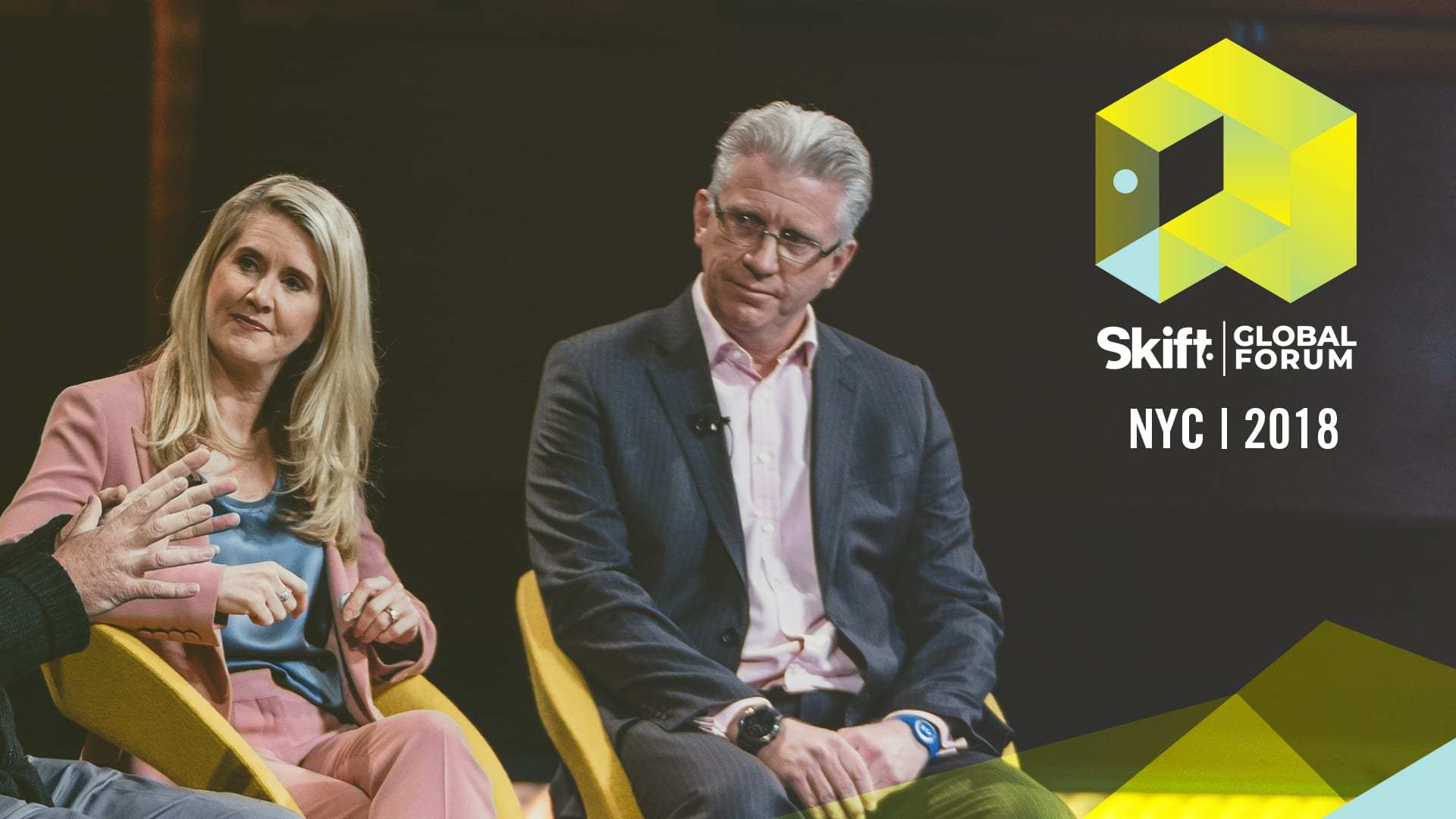Skift Take
Personalization is already a critical component of today’s travel industry business strategy. But as we learned from this Skift Global Forum panel, the industry now needs to evolve beyond personalization to embrace “hyper-relevance,” a practice where companies use customer insights to better serve the constantly changing needs of travelers.
This sponsored content was created in collaboration with a Skift partner.
The concept of customer personalization was unquestionably one of the hottest topics in the travel industry in 2018. Whether it’s been discussed in the boardrooms, written up in articles and research reports, or talked about on-stage at events like Skift Global Forum, nearly every travel business is trying to transform their personalization strategy, using the discipline to sell more relevant products and services to travelers while simultaneously building deeper relationships with customers.
But for all the talk about personalization, many travel businesses struggle to turn the concept into something tangible they can use to delight guests and drive meaningful business results. In fact, as organizations like Accenture now believe, travel companies need to evolve beyond surface-level personalization to embrace “hyper-relevance,” a practice whereby companies meet consumers on their own terms, using insights to deliver an experience that dynamically adapts to their changing needs and their daily lives. Adapting to this new era of hyper-relevance has never been more important. According to the company’s research, more than $212 billion in traveler spending may be in play as consumers switch to brands like OTAs offering more hyper-relevant experiences. And even more telling, three out of four travelers say they can “feel the difference” when companies offer more hyper-relevant experiences.
How will travel brands deliver on this growing demand for hyper-relevance? This was the question at the heart of a recent executive panel, titled “Defining Hyper-Relevance in Travel,” at Skift Global Forum 2018. The session featured Skift Executive Editor Greg Oates in conversation with Accenture’s Stephen Ferneyhough, managing director, global lead, travel industry, along with Jan Swartz, president of Princess Cruises, discussing the success of the cruise company’s efforts to deploy an innovative personalization program centered around a connected guest device called the Ocean Medallion.
Accenture’s Stephen Ferneyhough helped set the stage by explaining the personalization dilemma facing today’s travel brands. “All companies are striving to try and get improved relevance and intimate experiences with their customers,” he said. “[They’re] using loyalty programs, marketing, and experience to try and drive that. In the current age that’s important, because digital, tech-savvy consumers’ needs and wants are continuously evolving, and we need make sure keep up and stay ahead of that.” As he believes, this demand is grounded in Accenture’s concept of hyper-relevance, “…meeting customers on their own needs, making sure we help them in their daily lives, and creating brand intimacy from that.”
How are travel brands delivering hyper-relevance to guests? To help illustrate the opportunity, Jan Swartz of Princess talked about the company’s success with Ocean Medallion. “We are delivering truly personalized service by reducing tons of small friction points in the guest experience and saving them time,” said Swartz. “It all starts with this small wearable device called the Ocean Medallion.”
As Swartz explained, the Ocean Medallion program is helping Princess to build more robust profiles of its cruise ship guests, ensuring even more precise personalization in the future. “Over the course of a voyage, we gather over 400 million points of data,” said Swartz. This data is then fed into a real-time feedback loop that adapts to changing customer whims. “[It’s] also an incredible view into future ship design. So we can enhance both the guest experience in real-time, as well as mine that information to do a better job designing our ship experience for the future.” Most importantly, it’s helping Princess deliver a level of hyper-relevance to guests that was previously unimaginable in the cruise industry. “Historically, this level of personalized service has only been available to the elite traveler. But today, it’s delivered on Princess Cruises at scale,” said Swartz.
Clearly, achieving hyper-relevance can take time and effort to realize. As both Swartz and Ferneyhough acknowledged during the talk, this type of personalization requires a company-wide commitment to innovation, and a willingness to evolve the company culture. As Accenture’s Ferneyhough explained, the first steps are creating a vision and getting buy-in from senior leadership. “As companies wonder how can they go about [implementing] this, they have to look at their overall vision. How can they drive customer experience higher up in the corporate agenda? How can we get top-down CEO support and funding to make this happen?”
But it’s only through this more organization-driven approach that companies can move beyond a purely transaction-based approach to personalization, turning it into a strategic advantage that forms lasting bonds with today’s demanding travel customers.
Check out the video above to watch the full 10-minute conversation. And for more information about how hyper-relevance will impact the travel industry, make sure to visit Accenture’s website for more information.
Have a confidential tip for Skift? Get in touch
Tags: Accenture, personalization, sgf2018, skift global forum

